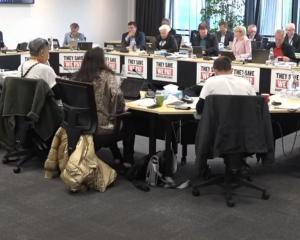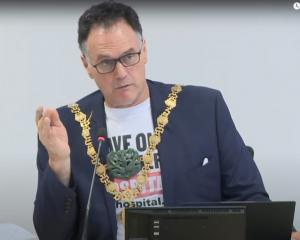

The standard used to be that civil servants and politicians were paid well and held accountable.
If found wanting in a major way they were expected to accept responsibility, apologise and offer their resignations. Such resignations were accepted, with regret.
These standards are written about in the rules for members of Parliament and the Cabinet Manual, the current one of which has been signed by Prime Minister Chris Hipkins.
Now the standard seems to be not to take responsibility, sometimes to acknowledge the situation was not ideal, but to make excuses, and sometimes to blame others or outside forces.

This was, however, followed by being sacked by Mr Hipkins for emailing donors about confidential cabinet discussions.
He has recently been found to have refused to provide emails under an official information request.
Mr Nash managed three different types of breaches of the Cabinet Manual.
Meng Foon was receiving money from the Ministry of Housing while being involved with an inquiry into emergency housing.
When the Human Rights Commissioner looked into his situation, she advised Mr Foon that her preliminary view was that his actions were serious enough to warrant removal.

Ex-minister Michael Wood was asked about his shareholdings and advised on a dozen occasions to deal with any shares he held in breach of his responsibilities.
He advised the Prime Minister he had sold them.
He hadn’t.
He then was stood down from his ministerial position as transport minister, and the Prime Minister said losing this position was making the ultimate sacrifice.
He then was found to have a variety of shares still undeclared, and finally resigned only when the Prime Minister would otherwise have expelled him from the Cabinet.
He said he took responsibility for mismanaging these conflicts, but said he worked 70 hours per week and was not focusing on personal business.

They lie at the very heart of our democracy and are the basis of our country remaining free for the most part of corruption.
Influencing police as a minister, sharing cabinet information and not providing information as mandated are all individually significant breaches.
Being paid by the Government through a housing provider while being involved with a report on social housing is seriously concerning.
The idea that having shares in companies where you have ministerial influence and considering this to be so irrelevant you keep saying you haven’t when asked is not minor.
Recent attempts to make light of conflicts, or to say everyone has them, is a dangerous move for a democracy.

He is clearly frustrated that even what seemed very reliable and competent ministers have been involved.
However, he has treated the issues as if breaches of the principles and guidance in the Cabinet Manual are specific to particular ministerial positions.
They are not.
Everyone can make mistakes and there are ways to deal with such mistakes.
For example, there are rules against misleading Parliament.
If a statement is made in Parliament which is wrong, the obligation is to correct it at the earliest possible opportunity.

But the rules about responsibility and conflicts are too important to be allowed to be thought of as just suggestions, and not to apply to those who we generally think of as decent such as Michael Wood.
Even the Australians take conflicts seriously.
They have the Independent Commission Against Corruption, which recently found former premier of New South Wales Gladys Berejiklian guilty of serious corrupt practice because of a conflict of interest.
We don’t need new rules.

If mistakes are made and immediately remedied where possible, there are ways of taking that into account.
Otherwise, an expectation of a swift resignation and a proper apology is a way for us to let everyone know that we take corruption, and the rules attempting to prevent or discourage even the perception of corruption, seriously.
- Hilary Calvert is a former Otago regional councillor, MP and Dunedin city councillor.













